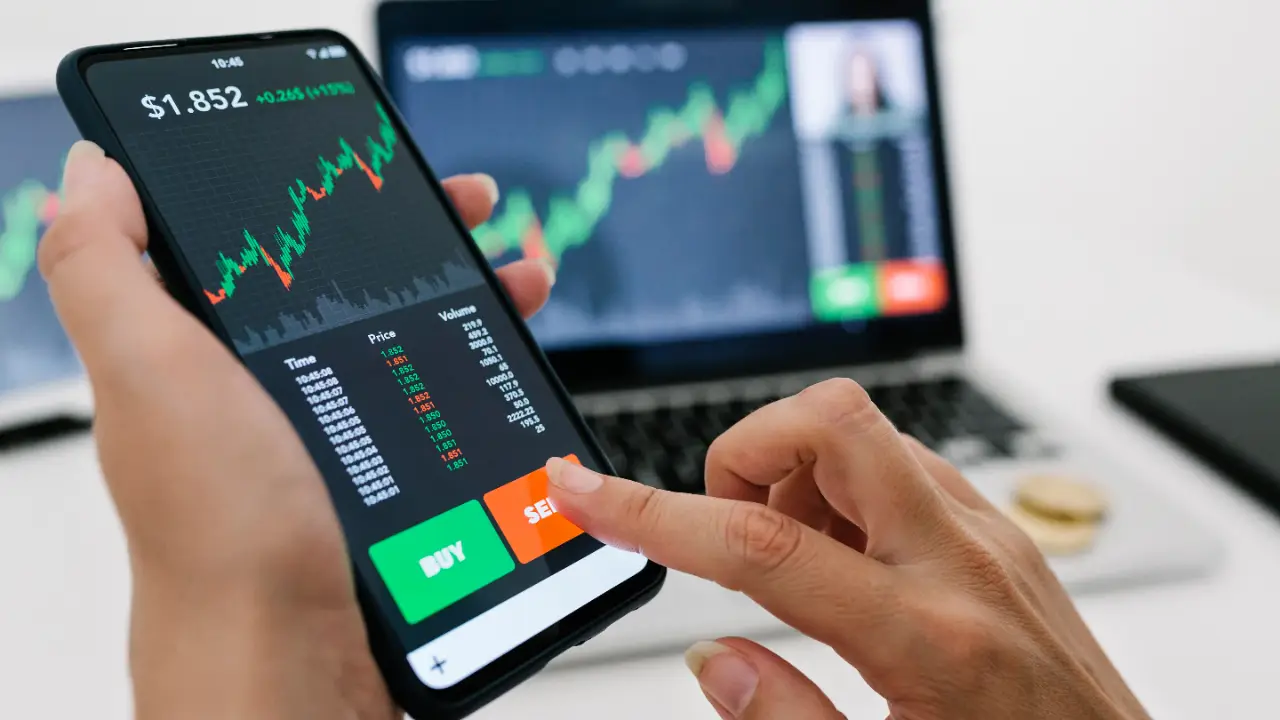Mastering Your Emotions – The Key to Maximizing Profits in Crypto Trading
Crypto trading can be a highly volatile and emotional space, with prices fluctuating rapidly and unexpected news causing drastic market movements. In such an environment, it’s crucial to learn how to master your emotions if you want to succeed and maximize your profits. In this article, we’ll discuss some tips and strategies to help you do just that. If you are searching for a trading platform, make sure to learn more about the platform before making any decisions.
Key to Maximizing Profits in Crypto Trading

Understand the Role of Emotions in Trading
The first step in mastering your emotions is to understand their role in trading. Many traders make the mistake of thinking that trading is purely rational, but the truth is that emotions play a big role. Fear, greed, and FOMO (fear of missing out) are just a few examples of emotions that can drive trading decisions.
Emotions are not inherently bad; in fact, they can be useful in certain situations. For example, fear can help you avoid taking unnecessary risks, while greed can motivate you to take advantage of opportunities. The problem is when emotions take over and cloud your judgment, leading you to make poor decisions.
Develop Emotional Intelligence
Emotional intelligence is the ability to recognize, understand, and manage your own emotions, as well as the emotions of others. It’s a crucial skill in trading, as it can help you stay calm and focused in volatile markets. To develop emotional intelligence, start by practicing mindfulness and self-awareness. Take the time to reflect on your emotions and how they affect your trading decisions.
Another way to develop emotional intelligence is to practice empathy. Try to put yourself in the shoes of other traders and understand their perspectives. This can help you anticipate market movements and make more informed decisions.
Set Realistic Expectations
One of the biggest challenges in trading is managing expectations. Many traders enter the market with unrealistic expectations of quick profits and easy success, only to be disappointed when reality doesn’t meet their expectations. This can lead to frustration, impatience, and irrational decision-making.
To avoid this, it’s important to set realistic expectations from the outset. Understand that trading is a long-term game, and that success requires patience, discipline, and hard work. Set achievable goals and focus on building a solid trading strategy, rather than trying to get rich quick.
Develop a Trading Plan
A trading plan is a set of rules and guidelines that govern your trading decisions. It should include your entry and exit strategies, risk management protocols, and other important factors. Developing a trading plan can help you stay disciplined and avoid making impulsive decisions based on emotions.
When developing your trading plan, be sure to include contingencies for different scenarios. For example, what will you do if the market suddenly drops? How will you react if your trade is not going as planned? Having a plan in place can help you stay calm and focused, even in turbulent markets.
Practice Self-Discipline
Self-discipline is the ability to control your impulses and stick to your trading plan, even when emotions are running high. It’s a critical skill in trading, as it can help you avoid impulsive decisions and stay focused on your long-term goals.
To practice self-discipline, start by setting clear boundaries for yourself. For example, decide how much time you will spend on trading each day, and stick to that schedule. Avoid checking the markets obsessively or making impulsive trades based on FOMO.
Another way to practice self-discipline is to develop a routine. Set aside time each day for research, analysis, and other important tasks, and stick to that routine. This can help you stay focused and avoid distractions that can lead to poor decision-making.
Final Thoughts
Mastering your emotions is not an easy task, but it’s essential if you want to succeed in crypto trading. By understanding the role of emotions in trading, developing emotional intelligence, setting realistic expectations, developing a trading plan, and practicing self-discipline, you can increase your chances of success and maximize your profits. Remember, trading is a long-term game, and success requires patience, discipline, and hard work. By staying focused on your goals and staying true to your trading plan, you can navigate the volatile and emotional world of crypto trading with confidence and success.

















